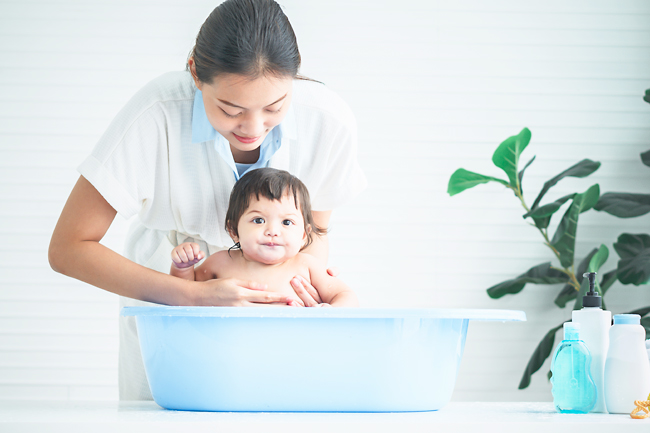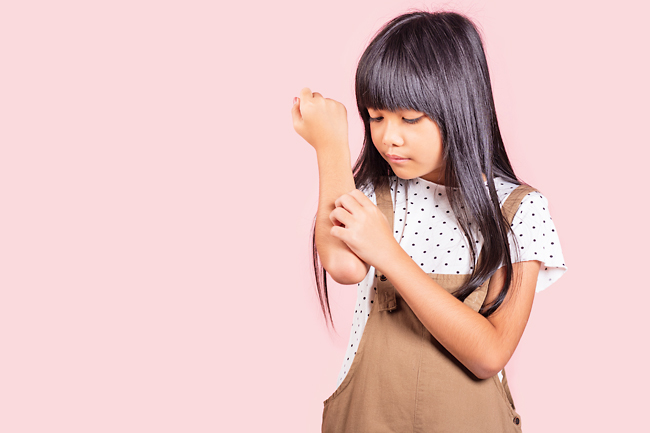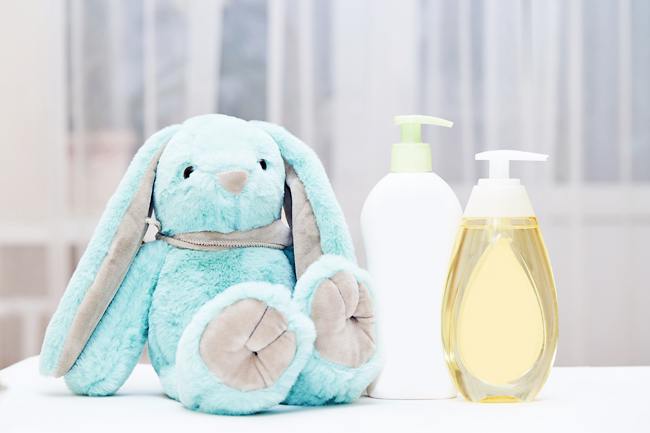ANN/THE STAR – Eczema encompasses various skin conditions such as atopic dermatitis, contact dermatitis, and seborrheic dermatitis, among others, all characterised by skin inflammation resulting in itchiness and a rash-like appearance.
While eczema has no cure, it can be managed effectively, enabling children to lead relatively normal lives. However, parents must take additional precautions to prevent flare-ups.
There are some tips on minimising or preventing flare-ups and this includes using suitable toiletries. When showering, avoid harsh soaps and pat skin dry with a soft, absorbent towel. Avoid excessive bathing as this can also dehydrate the skin.
Not all fabrics are equal, so it’s best to avoid certain ‘scratchy’ fabrics (like wool or polyester) and remove any clothing tags as these are potential irritants.
You should also be prepared before exercising. Sweating helps cool the body down, but it can also dehydrate sensitive skin, thus possibly triggering a flare-up. Wear loose clothing (100 per cent cotton, no synthetics) and drink plenty of water before exercising. Another option is to use cooling towels to prevent overheating.
Secondhand smoke from cigarette or vape is another potential irritant. Other environmental factors that may trigger flare-ups include hot and cold weather, dampness, dust mites, pet dander and mould. Avoid air-conditioning that is too cold as this will lower air humidity and dehydrate the skin.



It’s also useful to keep a food diary. If your child has food allergies, this will help you to trace the source in the event of a flare-up occurring.
It’s also important to stay moisturised. Use eczema-friendly moisturiser before and after exercising, right after bathing (apply on damp skin), or as often as required. Prioritise this step as keeping the skin well-hydrated is very important.
When buying or using products for kids with eczema, you should exercise extra care. Use only products that are known to be safe for use with eczema. This should include all products that will come into contact with your child’s skin including soap, shampoo, clothing and moisturisers.
WHY SKIN CARE MATTERS
You should choose an emollient-rich moisturiser. It can be effective on its own or used with a corticosteroid cream. Moisturise liberally first, then apply the cream sparingly after the moisturiser has been absorbed.
Some moisturiser ingredients to look for include ceramides (a type of lipid or fat molecule) that helps skin retain moisture and allows it to function properly, thus restoring the skin’s protective barrier), menthol (provides a cooling effect that can help alleviate the itch from flare-ups) and pyrrolidone carboxylic acid (PCA), which is one of the component of the natural moisturising factor of the skin, which aids in skin hydration. Petrolatum (or petroleum jelly, derived from petroleum) is also useful. It’s a thick emollient that prevents water loss from your skin, thus helping to repair skin barrier. During flare-ups, it can be applied directly after bathing or throughout the day.
OTHER USEFUL TIPS
Some skincare products match healthy skin pH and this will help prevent skin irritation. A very important thing to remember is to select fragrance-free products, and not just unscented. The difference is that unscented may mean that it contains a masked fragrance, whereas fragrance-free means it does not contain any fragrance at all.
Avoid too much sun and when heading outdoors under strong sunlight, use mineral-based, fragrance-free sunscreen.
You may also need to avoid certain products such as baby powder, baby wipes, bubble bath and stuffed and soft toys as they might dry skin or trigger skin reaction for those with eczema.
Parents need to be extra alert to these factors as they contribute to, and may cause eczema flare-ups. Only by being vigilant would you be able to prevent or minimise the chances of these flare-ups from happening. – Dt Sabeera Begum





